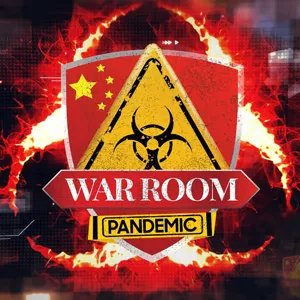By Rev. John F. Naugle at Brownstone dot org.
Over five years since the dark nightmare of lockdowns and mandates began, we are still asking the most fundamental questions.
How did all of this happen? How do we prevent it from happening again?
Of course, we've gained much clarity in the intervening years. For example, we now know that what happened wasn't really a public health response at all, but rather that our military and intelligence agencies were using public health as a sock puppet. As Debbie Lerman describes in The Deep State Goes Viral:
I discovered that the US Covid pandemic response was not a public health response run by the HHS, CDC or any other public health body. Instead, it was a biodefense/counter-terrorism response, run by the Pentagon, National Security Council, and Department of Homeland Security.
In short, the deep state, having been alarmed that a virus that they might have created had leaked out of a lab which they were funding, responded as if we were under a biowarfare attack and implemented plans which included the deployment of a never-tested mRNA platform that had long been their hoped-for response in such a scenario.
From my very first op-ed opposing lockdowns in April of 2020, I observed that a very base form of consequentialist reason was at work in the argument for lockdowns. I later expanded upon these thoughts in Brownstone Journal. At that point, however, I was under the impression that what we were facing was merely unhinged public health "experts." The revelations that Lerman and others have uncovered reveal a far darker consequentialism than that of Cuomo's "If it saves just one life."
My mind turns to the dark and dystopian video game Portal, which I played many years ago, whose plot centers on a malevolent AI that seeks to perform "science" by experimenting on unwilling human test subjects whose survival is of no concern. The lyrics of the ending song of this game could be easily adapted to fit what our government did to us in the name of national defense:
This was a triumph
I'm making a note here, "Huge success"
It's hard to overstate my satisfaction
Aperture Science
We do what we must because we can
For the good of all of us, except the ones who are dead
But there's no sense crying over every mistake
You just keep on trying 'til you run out of cake
And the science gets done, and you make a neat gun
For the people who are still alive
It would be tempting to write off our malefactors as mustache-twirling villains with no concern for morality at all. Instead, I'd like to suggest that reality is far darker. These people were following the natural results of their flawed moral frameworks that focus only on their hoped-for scientific outcomes.
In their minds, biowarfare is a foregone future outcome, and risky experiments, even on the entire population, are justified regardless of the short-term cost because of the potential good outcomes in the future. These people are bad, not because they lack a moral framework, but rather because they operate from a moral framework which is itself bad.
This distinction is lost on many of our allies against lockdowns and mandates. This is because they operate from a completely different and incompatible moral framework, based largely on rules and duty rather than outcomes. For example, the obvious violation of principles like "informed consent" or "bodily autonomy" makes it quite clear to many that what happened shouldn't have happened.
Those who hold firmly to such principles have a hard time imagining the inner monologue of the person who rejects absolute moral rules in favor of the argument that the "ends justify the means."
What is really at play here is a long-running philosophical debate between the competing moral philosophies of deontological ethics and consequentialist ethics. It would be helpful then to review how modern thought got to this debate, and to acknowledge that the answers we need are found precisely in what modernity left behind fr...





 View all episodes
View all episodes


 By Brownstone Institute
By Brownstone Institute



















